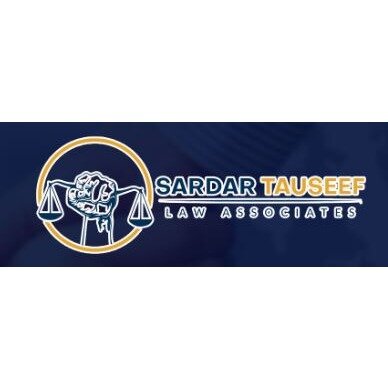Best Employer Lawyers in Attock
Share your needs with us, get contacted by law firms.
Free. Takes 2 min.
List of the best lawyers in Attock, Pakistan
About Employer Law in Attock, Pakistan
Employer law in Attock, Pakistan encompasses the rules and regulations that govern the relationship between employers and employees within this region. The framework includes various aspects such as employment contracts, working conditions, wages, work hours, termination, and discrimination. Compliance with these laws is essential for both employers and employees to ensure fair and lawful treatment in the workplace.
Why You May Need a Lawyer
There are several situations where individuals or businesses in Attock may require legal assistance pertaining to employer law. Common scenarios include disputes over employment contracts, wrongful termination claims, issues related to workplace safety, wage and hour disputes, or matters involving discrimination or harassment. A lawyer specializing in employer law can provide guidance, negotiation, and representation to protect your rights and interests.
Local Laws Overview
The labor laws in Attock, Pakistan are influenced by the national legislative framework, particularly the Labor Laws of Pakistan. These laws set standards for minimum wage, working hours, conditions of employment, and rights to unionize. The Industrial and Commercial Employment (Standing Orders) Ordinance, 1968, and the Payment of Wages Act, 1936, among others, are pivotal in defining employer-employee relationships. Understanding these local laws is crucial for compliance and ensuring fair labor practices in Attock.
Frequently Asked Questions
What is the minimum wage for employees in Attock?
The minimum wage in Attock is determined by the federal and provincial labor departments. It is crucial to check the latest notifications from authorities for the current rate as it is subject to periodic revisions.
How are overtime wages calculated?
Overtime wages are typically set at one and a half times the regular hourly wage, although specific terms may vary based on the employment agreement and the type of work performed.
What are the rights of employees regarding safe working conditions?
Employers are required to provide a safe working environment in accordance with the Factories Act, 1934, and other relevant regulations, ensuring that health and safety standards are maintained to prevent workplace accidents and injuries.
Can an employer in Attock terminate an employee without notice?
Termination of employment typically requires notice or a severance package, as stated in the employment contract or as per the guidelines of the Industrial and Commercial Employment Ordinance, 1968.
What is the process for resolving employment disputes?
Employment disputes can be resolved through negotiation, mediation, or adjudication by labor courts. Seeking the assistance of a legal professional is advisable to navigate these processes effectively.
Are there laws against workplace discrimination in Attock?
Yes, various laws such as the Protection Against Harassment of Women at the Workplace Act, 2010, provide protection against discrimination and harassment in the workplace.
What should be included in an employment contract?
An employment contract should clearly define the roles and responsibilities, compensation, working hours, terms of termination, and dispute resolution mechanisms.
How frequently should salaries be paid?
Salaries should be paid monthly, unless specified otherwise in the employment contract, as per the Payment of Wages Act, 1936.
Is unionization allowed for employees in Attock?
Yes, employees have the right to form unions and engage in collective bargaining as per the Industrial Relations Act, 2012.
What are the penalties for non-compliance with employment laws?
Penalties for non-compliance can include fines, orders for corrective action, and potential legal judgments against the employer depending on the severity of the violation.
Additional Resources
Individuals seeking further information or assistance can consult various resources such as the Pakistan Department of Labour, National Industrial Relations Commission, or local labor lawyers and law firms specializing in employment law.
Next Steps
If you require legal assistance related to employer issues in Attock, it is advisable to consult with a qualified attorney who specializes in labor law. Prepare all relevant documents, such as employment contracts and correspondence, to ensure that your lawyer can provide informed and tailored advice. Consider reaching out to local bar associations for recommendations and assistance in finding a suitable legal professional.
Lawzana helps you find the best lawyers and law firms in Attock through a curated and pre-screened list of qualified legal professionals. Our platform offers rankings and detailed profiles of attorneys and law firms, allowing you to compare based on practice areas, including Employer, experience, and client feedback.
Each profile includes a description of the firm's areas of practice, client reviews, team members and partners, year of establishment, spoken languages, office locations, contact information, social media presence, and any published articles or resources. Most firms on our platform speak English and are experienced in both local and international legal matters.
Get a quote from top-rated law firms in Attock, Pakistan — quickly, securely, and without unnecessary hassle.
Disclaimer:
The information provided on this page is for general informational purposes only and does not constitute legal advice. While we strive to ensure the accuracy and relevance of the content, legal information may change over time, and interpretations of the law can vary. You should always consult with a qualified legal professional for advice specific to your situation.
We disclaim all liability for actions taken or not taken based on the content of this page. If you believe any information is incorrect or outdated, please contact us, and we will review and update it where appropriate.








